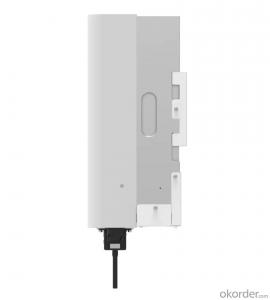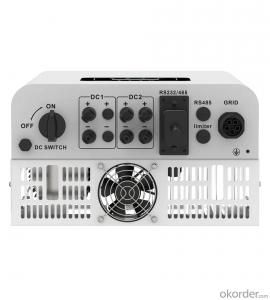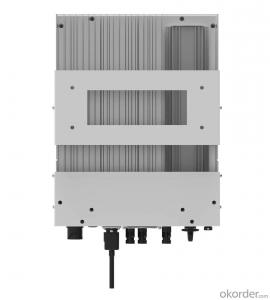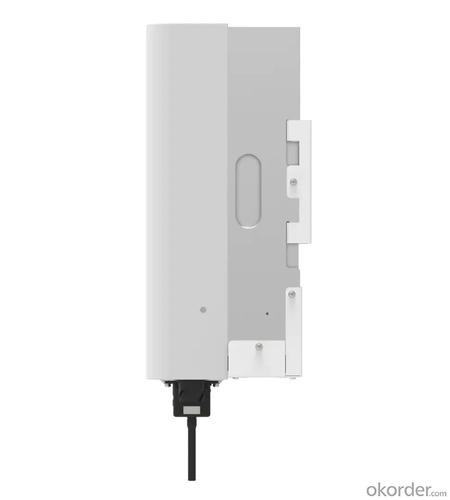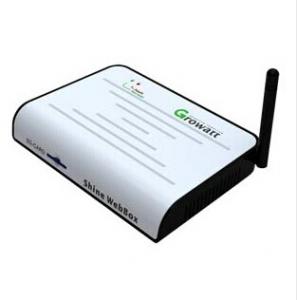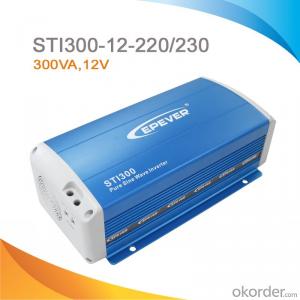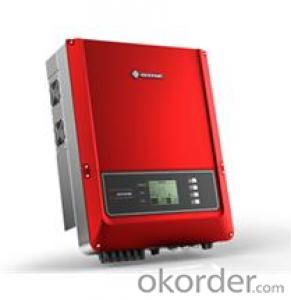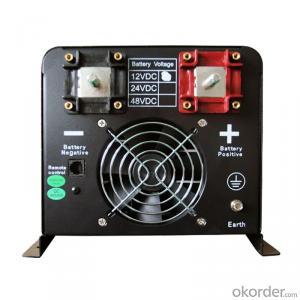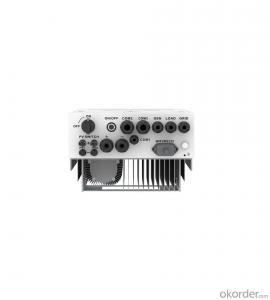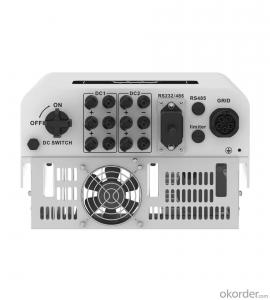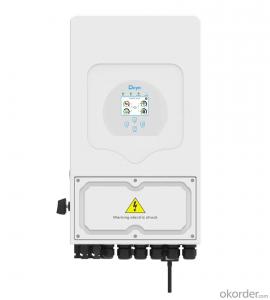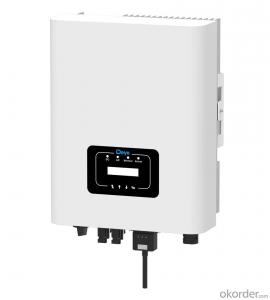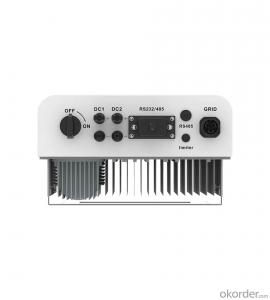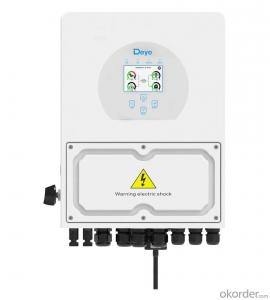Su Kam Solar Inverter - Sun-6/8k-g03-lv | 6-8kW | Three Phase | 2 MPPT | Low Voltage | 127/220VAC
- Loading Port:
- Ningbo
- Payment Terms:
- TT OR LC
- Min Order Qty:
- 100 pc
- Supply Capability:
- 5000 pc/month
OKorder Service Pledge
OKorder Financial Service
You Might Also Like
Specification
| Technical Data | ||||
| Model | SUN-6K-G03-LV | SUN-8K-G03-LV | ||
| Input Side | ||||
| Max. DC Input Power (kW) | 7.8 | 10.4 | ||
| Max. DC Input Voltage (V) | 800 | |||
| Start-up DC Input Voltage (V) | 250 | |||
| MPPT Operating Range (V) | 200~700 | |||
| Max. DC Input Current (A) | 13+13 | 13+26 | ||
| Max. Short Circuit Current (A) | 19.5+19.5 | 19.5+39 | ||
| Number of MPPT / Strings per MPPT | 2/1 | 2/1+2 | ||
| Output Side | ||||
| Rated Output Power (kW) | 6 | 8 | ||
| Max. Active Power (kW) | 6.6 | 8.8 | ||
| Nominal Output Voltage / Range (V) | 3L/N/PE 127/0.85Un-1.1Un,220 /0.85Un-1.1Un (this may vary with grid standards) | |||
| Rated Grid Frequency (Hz) | 60 / 50 (Optional) | |||
| Operating Phase | Three phase | |||
| Rated AC Grid Output Current (A) | 15.7 | 21 | ||
| Max. AC Output Current (A) | 17.3 | 23.1 | ||
| Output Power Factor | 0.8 leading to 0.8 lagging | |||
| Grid Current THD | <3%< span=""> | |||
| DC Injection Current (mA) | <0.5%< span=""> | |||
| Grid Frequency Range | 57~62 | |||
| Efficiency | ||||
| Max. Efficiency | 98.3% | 98.5% | ||
| Euro Efficiency | 97.5% | |||
| MPPT Efficiency | >99% | |||
| Protection | ||||
| DC Reverse-Polarity Protection | Yes | |||
| AC Short Circuit Protection | Yes | |||
| AC Output Overcurrent Protection | Yes | |||
| Output Overvoltage Protection | Yes | |||
| Insulation Resistance Protection | Yes | |||
| Ground Fault Monitoring | Yes | |||
| Anti-islanding Protection | Yes | |||
| Temperature Protection | Yes | |||
| Integrated DC Switch | Yes | |||
| Remote software upload | Yes | |||
| Remote change of operating parameters | Yes | |||
| Surge protection | DC Type II / AC Type II | |||
| General Data | ||||
| Size (mm) | 330W×457H×205D | 333W×472H×202D | ||
| Weight (kg) | 11 | 15 | ||
| Topology | Transformerless | |||
| Internal Consumption | <1W (Night) | |||
| Running Temperature | -25~65℃, >45℃ derating | |||
| Ingress Protection | IP65 | |||
| Noise Emission (Typical) | <25 dB | <40 dB | ||
| Cooling Concept | Natural cooling | Smart cooling | ||
| Max. Operating Altitude Without Derating | 2000m | |||
| Warranty | 5 years | |||
| Grid Connection Standard | CEI 0-21, VDE-AR-N 4105, NRS 097, IEC 62116, IEC 61727, G99, G98, VDE 0126-1-1, RD 1699, C10-11 | |||
| Operating Surroundings Humidity | 0-100% | |||
| Safety EMC / Standard | IEC/EN 61000-6-1/2/3/4, IEC/EN 62109-1, IEC/EN 62109-2 | |||
| Features | ||||
| DC Connection | MC-4 mateable | |||
| AC Connection | IP65 rated plug | |||
| Display | LCD160 | |||
| Interface | 2 RS485/RS232/Wifi/LAN | |||
127/220Vac and 60Hz, three phase system
2 MPP tracker, Max. efficiency up to 98.5%
Zero export application, VSG application
String intelligent monitoring (optional)
Wide output voltage range
Anti-PID function (Optional)
This series inverter is specially designed for 127/220Vac three-phase system, especially suits for South American areas. With compactness design, easy to install and operate. It supports wide AC output voltage to ensure longer working hour, improving your economic benefits.
- Q: What is the role of anti-islanding protection in a solar inverter?
- The role of anti-islanding protection in a solar inverter is to ensure the safety of utility workers and prevent damage to the electrical grid in the event of a power outage. It detects when the grid goes down and immediately shuts off the solar inverter, preventing it from continuing to generate electricity and potentially sending power back into the grid. This feature is essential to avoid the risk of electricity flowing into the grid, which could pose a danger to technicians working on power lines and disrupt the stability of the electrical system.
- Q: How do you choose the right size of solar inverter for a solar power system?
- To choose the right size of solar inverter for a solar power system, you need to consider the total capacity of your solar panels and the maximum power output they can generate. The solar inverter's capacity should be equal to or slightly higher than the maximum power output of your solar panels to ensure optimal performance and efficiency. Additionally, you should also consider any future expansion plans for your solar power system to account for potential increases in capacity. It is recommended to consult with a professional solar installer or engineer to accurately determine the appropriate size of the solar inverter for your specific requirements.
- Q: Can a solar inverter be used in areas with high levels of electromagnetic interference (EMI)?
- Yes, a solar inverter can be used in areas with high levels of electromagnetic interference (EMI) as long as it is properly shielded and designed to withstand such conditions. However, it is important to choose an inverter that meets the necessary EMI compliance standards to ensure reliable and efficient operation in these environments.
- Q: What is the role of a synchronization circuit in a solar inverter?
- The role of a synchronization circuit in a solar inverter is to ensure that the inverter's output voltage and frequency are synchronized with the utility grid. This is important for two reasons. Firstly, it allows the solar inverter to safely connect and disconnect from the grid, ensuring smooth and seamless operation. Secondly, it enables the solar inverter to inject electricity generated from solar panels into the grid at the correct voltage and frequency, making it compatible with other electrical devices and systems connected to the grid.
- Q: PV grid-connected inverter can directly load it?
- Grid-connected inverter is like a car file, he first detects the grid waveform, can not detect not boot, and then the PV DC modulation and consistent with the grid waveform, and then hang up.
- Q: Can a solar inverter be connected to a smart home or monitoring system?
- Yes, a solar inverter can be connected to a smart home or monitoring system. Many modern solar inverters have built-in communication capabilities, such as Wi-Fi or Ethernet connectivity, which allows them to connect to a smart home or monitoring system. This enables users to monitor and control their solar power generation and energy consumption remotely, receive real-time data and alerts, and optimize their energy usage for maximum efficiency.
- Q: How does a solar inverter handle variations in grid voltage?
- A solar inverter handles variations in grid voltage by continuously monitoring the voltage levels and adjusting its output accordingly. It has built-in voltage regulation and control mechanisms that help maintain a stable and consistent output voltage, even when there are fluctuations in the grid voltage. This ensures that the solar inverter can efficiently convert the DC power generated by the solar panels into AC power that is synchronized with the grid, regardless of any voltage variations in the grid.
- Q: What is the role of voltage regulation in a solar inverter?
- The role of voltage regulation in a solar inverter is to ensure that the energy generated by the solar panels is converted and delivered to the electrical grid or used within a premises at a stable and appropriate voltage level. It helps to maintain the quality and consistency of the electricity output, protecting the connected devices and ensuring optimal performance of the solar power system.
- Q: Can a solar inverter be used with any type of solar panel?
- Yes, a solar inverter can be used with any type of solar panel as long as the voltage and power output of the panel are compatible with the inverter's specifications.
- Q: What is the maximum power output of a solar inverter?
- The maximum power output of a solar inverter can vary depending on its size and model. Generally, residential solar inverters have a power output ranging from 2 kilowatts (kW) to 10 kW, while commercial and utility-scale inverters can have power outputs exceeding 1 megawatt (MW).
Send your message to us
Su Kam Solar Inverter - Sun-6/8k-g03-lv | 6-8kW | Three Phase | 2 MPPT | Low Voltage | 127/220VAC
- Loading Port:
- Ningbo
- Payment Terms:
- TT OR LC
- Min Order Qty:
- 100 pc
- Supply Capability:
- 5000 pc/month
OKorder Service Pledge
OKorder Financial Service
Similar products
Hot products
Hot Searches
Related keywords
